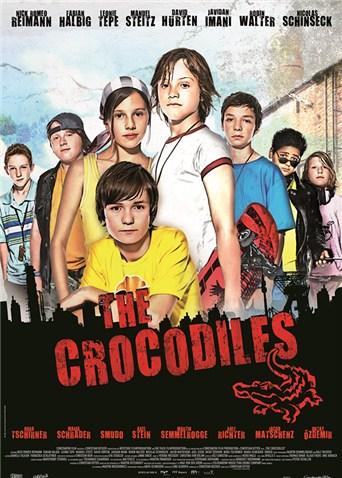抗战胜利后,意外日本女人树子自杀未死,意外被哈尼族年轻军官戛沙救下,并随他返回云南故乡,不料刚到家门的戛就因旧病复发而死去。戛沙的弟弟戛洛为保护树子不受族人的歧视,对树子精心照顾,逐渐两人产生了爱意,并照当地的哥死弟承的习俗嫁给了戛洛,并生儿育女。岁月流逝,树子对故土的渴望日渐加深。一边是阔别五十余年的故土,一边是割舍不断的感情,树子该如何决择……

抗战胜利后,意外日本女人树子自杀未死,意外被哈尼族年轻军官戛沙救下,并随他返回云南故乡,不料刚到家门的戛就因旧病复发而死去。戛沙的弟弟戛洛为保护树子不受族人的歧视,对树子精心照顾,逐渐两人产生了爱意,并照当地的哥死弟承的习俗嫁给了戛洛,并生儿育女。岁月流逝,树子对故土的渴望日渐加深。一边是阔别五十余年的故土,一边是割舍不断的感情,树子该如何决择……

回复 :贤杰向他初恋的苏门答腊人坦承了他的爱,但她犹豫不决,他最好的朋友宣告了友谊的终结。他们并不同情贤杰,他就在死亡的眼前,只想着自己。不为人知的事情发生在贤杰周围。有一天,一种奇怪的口音出现了,混乱的日子自然又回来了。
回复 :中央红军北上抗日后,白匪军卷土重来,红色根据地一夜之间变了颜色,到处充满了血雨腥风。玉梅(田华 饰)的家乡处在白色恐怖之中。党组织受到严重破坏,来不及转移的赤卫队干部和红军家属惨遭毒手。侥幸逃脱的玉梅受到叛徒马玉辉(李林 饰)的百般纠缠,多亏马玉辉妻子协助,玉梅总算逃脱了魔爪。在去东山寻找党组织的途中,遇见另外两个女党员,她们是惠珍(杜凤霞 饰)和秀英(李萌 饰),她们也是被迫上山找党的。三人成立了党小组,玉梅任组长,她们发誓一定找到党组织,领导群众坚持地下武装斗争,等红军打回来,为死难的乡亲报仇。有一次,山上的通信员小程(王春英 饰)到玉梅处取为游击队准备的干粮时,被敌匪首(周文斌 饰)带人包围,为掩护同志脱险,玉梅挺身而出......
回复 :Whenever I see La Paura I think of it as a companion piece to Eyes Wide Shut, or maybe it is the other way around. Adultery makes both films tick but in different ways. I think Phillip French was right on the money when he pointed out a Wizard of Oz thing in Kubrick's last work. Like Dorothy, Tom and Nicole go through fantasies and nightmares and at the end Dorothy's reassuring childish motto "there's no place like home" is ironically updated to the adult circumstantial adage "there's no sex like marital sex". Kubrick's take is intellectual, he never leaves the world of ideas to touch the ground. He taunts the audience first with an erotic movie and then with a thriller and refuses to deliver either of them. He was married to his third wife for 40 years, until he died. Rossellini was still married to Ingrid Bergman when he directed La Paura; they had been adulterous lovers and their infidelity widely criticized La Paura is a tale, a noirish one. The noir intrigue is solved and the tale has a happy ending. The city is noir; the country is tale, the territory where childhood is possible. The transition is operated in the most regular way: by car, a long-held shot taken from the front of the car as it rides into the road, as if we were entering a different dimension. Irene (Bergman) starts the movie: we just see a dark city landscape but her voice-over narration tells us of her angst and informs us that the story is a flashback, hers. Bergman's been cheating on her husband. At first guilt is just psychological torture but soon expands into economic blackmail and then grows into something else. From beginning to end the movie focuses on what Bergman feels, every other character is there to make her feel something. Only when the director gives away the plot before the main character can find out does he want us to feel something Bergman still can't. When she finds out, we have already experienced the warped mechanics of the situation and we may focus once again on the emotional impact it has on Bergman's Irene. In La Paura treasons are not imagined but real, nightmares are deliberate and the couple's venom suppurates in bitter ways. Needless to say, Ingrid has another of her rough rides in the movies but Rossellini doesn't dare put her away as he did in Europa 51, nor does he abandon her to the inscrutable impassivity of nature (Stromboli). His gift is less transcendent and fragile than the conclusion of Viaggio in Italia. He just gives his wife as much of a fairy tale ending as a real woman can have, a human landscape where she can finally feel at home. Back to the country, a half lit interior scene where shadows suggest the comfort of sleep. After all, it's the "fairy godmother" who speaks the last words in the movie.

